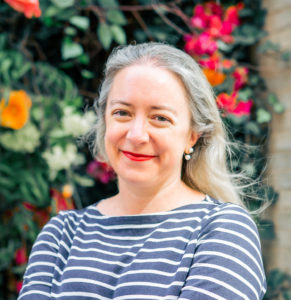Urgency and Common Purpose on Sustainability

Posted
Categories
As the authentic leader in European sustainable venture capital, we are regularly asked how to create a better world. Last week, we participated in a roundtable hosted by the UN Environmental Programme as they sought contributions to their next 5-year plan. Here’s what we told them.
My young son asked me what I did at work last week. I said that among other things, I was invited to a UN roundtable.
The UN Environmental Programme (UNEP) is working on its medium-term strategy and was inviting views from the private sector. So, around a virtual table several global heads of sustainability of leading corporations made it clear that the corporate world shares a sense of urgency and common purpose with the UN. My particular perspective and contribution was on the power of innovation and of entrepreneurs to make a difference. Since ETF Partners has focused exclusively on this for over 15 years now, I had a lot to say! What was so refreshing was the new enthusiasm to listen, and to prepare for significant action.
As you can imagine, we have some strong views on both why and how sustainability and resilience should be built into the foundations of our economy – and how the UN, the European Commission, national governments and other multilateral institutions can help.
There is no question that short-term pressures and incentives have made it difficult in the past for investors to build sustainable portfolios. Our own investors, as is normal across the venture capital industry, commit contractually to a decade or more of partnership with us. This more than anything fosters a healthy culture of long-term alignment and co-operation. Based on our experience, we therefore believe that ensuring long-term alignment will be key to the successful transition to a sustainable economy.
Clearly there is still a need for governments and international organisations to help companies take action on sustainability, and to support the initiatives already underway.
Specifically, I said that we see an important role for additional legislation in two areas. The first is in requiring companies to properly account for impairment of value to assets whose use is incompatible with EU and global climate goals. The second is removing subsidies from polluting industries. The combined effect of these would, I think, be dramatic and even painful for some, but strategically absolutely correct for society as a whole. Finance should naturally flow, like water, more evenly across the landscape and “pool” in the most rewarding and impactful sectors.
Some are arguing in favour of using legislation as a stick. In effect, this would retain the existing biases but then use legislation to force investors to push that water uphill. We feel that this is simply adding complexity, and potentially just more bureaucracy to a set of problems that can and need to be simplified. This ‘stick’ approach, I think, is far less likely to be successful. Once the true costs of the externalities of unsustainable business models are known, quantified and “un-subsidised”, investors are far more likely to make economically-sound, sustainable decisions.
We have 10 years to save the planet, according to the European Commission. We therefore simply don’t have time to remake the financial system, and even trying to amend it significantly, may cause delay. The existing system does have established channels and governance for deployment of capital into the required infrastructure and innovation that is needed. In the interest of time, it makes sense not to ‘re-invent the wheel’ but simply to greatly increase the supply of capital through those channels. Clearly, for the European Commission, the European Investment Fund is a prime example of such a channel and – along with national funding bodies in other European countries such as the British Business Bank, KfW, Tesi, and Vaekstfonden – is showing real leadership in this regard.
We believe the concept of “green finance” as a sector should basically be done away with. All finance must become “green finance”. If not, we would be in effect declaring “green” to be a small sector within the whole. Clearly, if there is a climate emergency it is far more fundamental than that. (Finance that remains “un-green” will in time be increasingly vulnerable to financial risk, for example, through the impairment of assets because of incompatibility with international and EU climate goals). Instead of focusing on “green finance,” there should be a focus on both revamping governance and accounting standards to actually take account of climate risk; and on accelerating investment into innovation and modern, appropriate, infrastructure. In our view, much of this infrastructure is actually ‘technology,’ as well as larger physical assets.
‘ESG’ as it currently exists and is used, while helpful, is not the answer. One-size-fits-all ESG scores reward the companies that can afford to manage (and massage) them. For example, well-managed well-resourced mining companies or large utilities will always be able to come up with a better score than a small software company with limited resources. In other words, ESG is a useful compliance toolkit for larger organisations, but not for SMEs. Further, ESG does not capture the additionality of innovation. A common language is still needed that is flexible enough to work across manufacturing and service industries, across large companies and SMEs, and across both mature and innovative sectors and enterprises.
At heart, we are optimists – we believe that the work currently being done, by entrepreneurs and innovators, will make the difference we need to see in our world. It is heartening to see the UN, the European Commission and other bodies listening and working together to construct the supportive frameworks we all need to build a more resilient, sustainable economy.
So, I told my son that I gave it my best shot – and in fact, that they ‘got both barrels’ from me!


